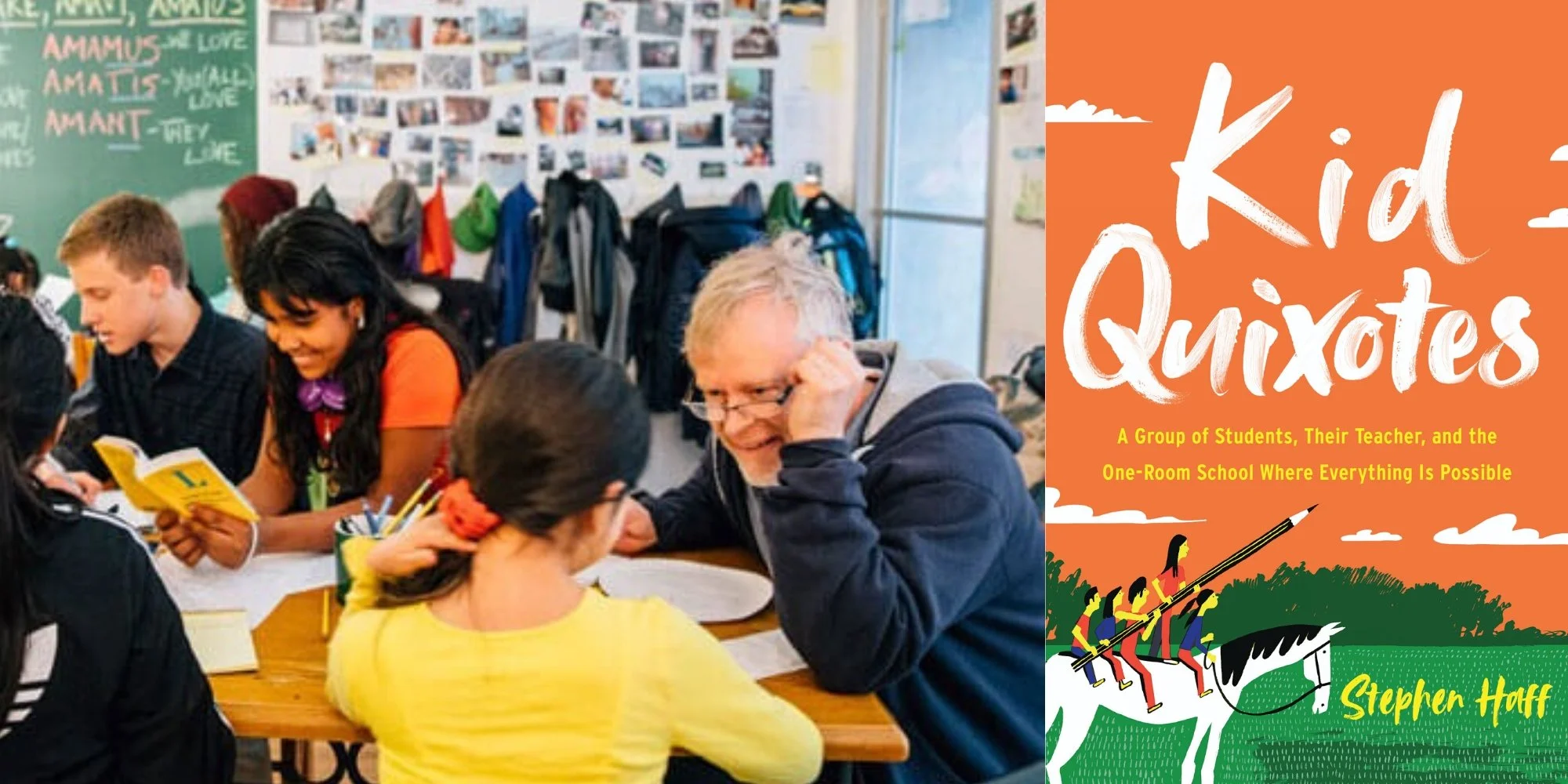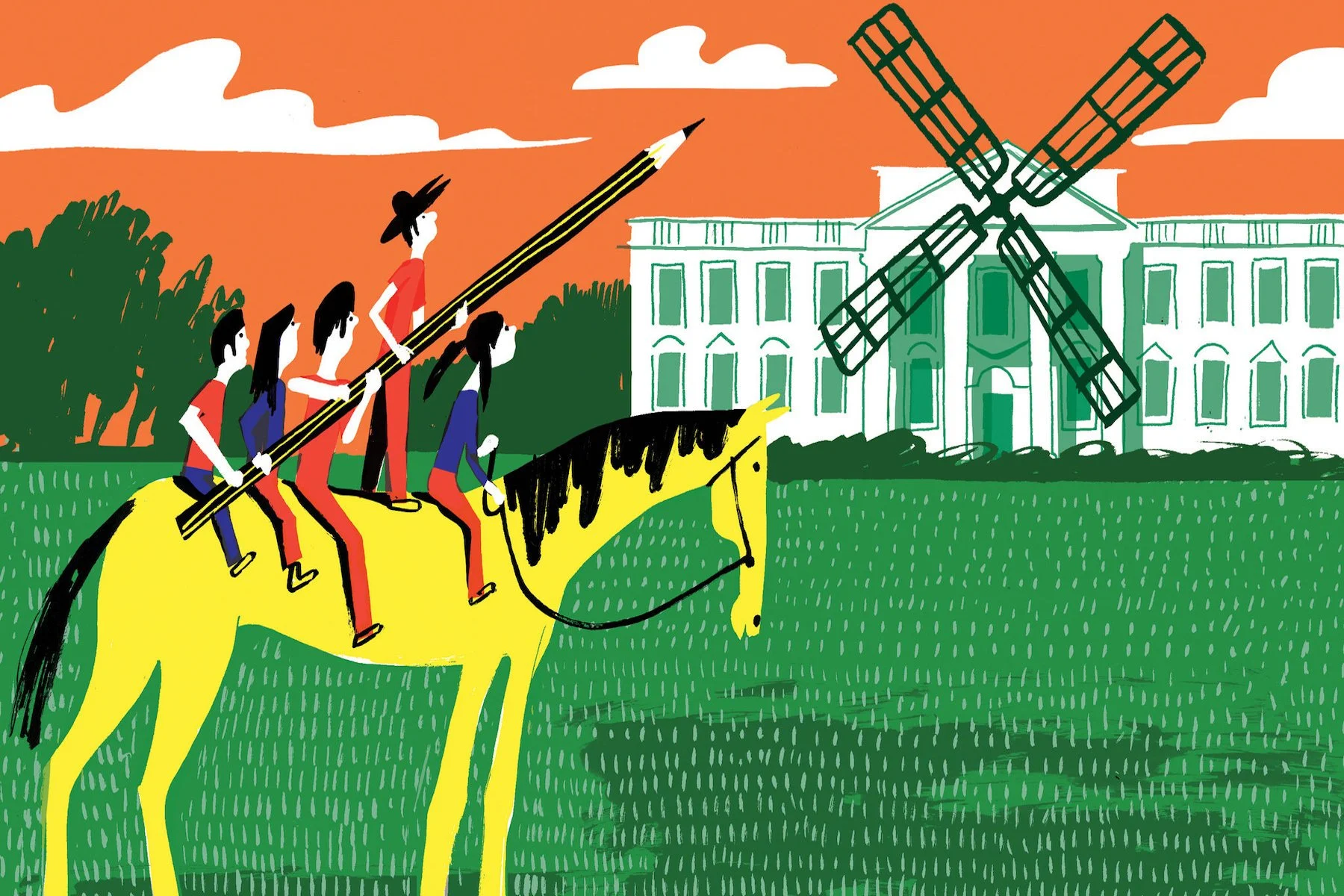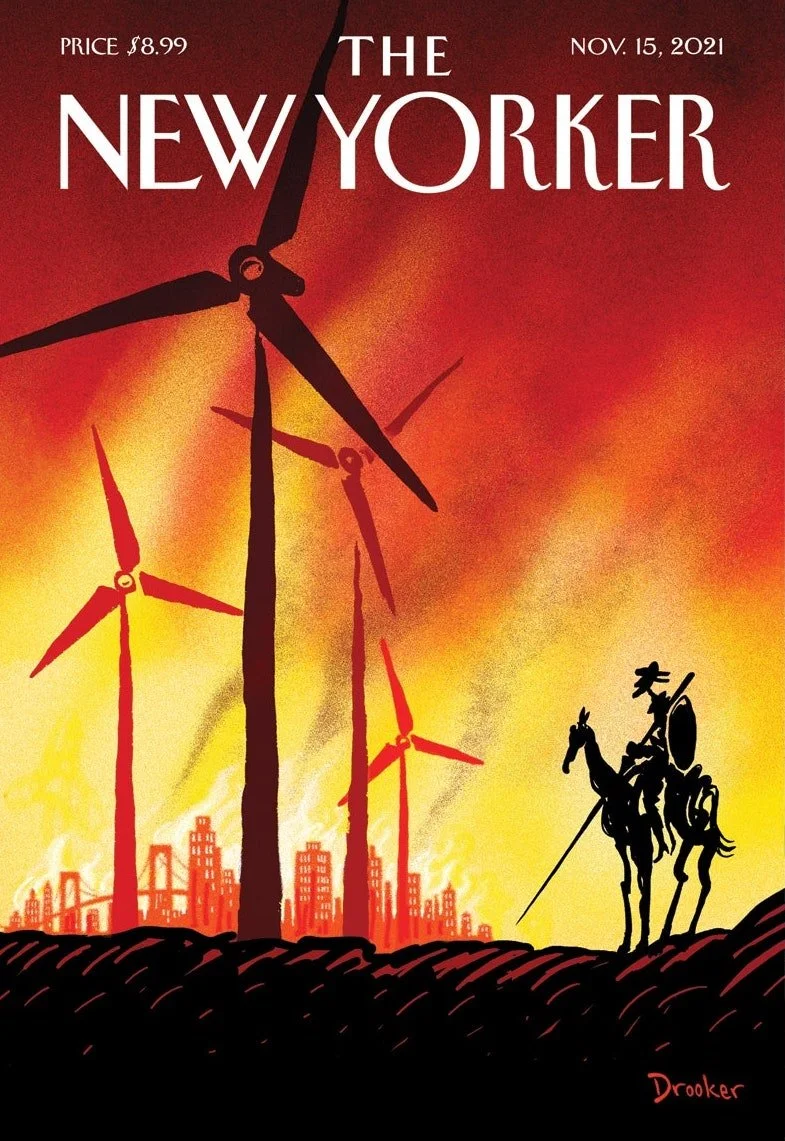The Shipwreck of Identity in North America: A Cervantine Take
By Bradley Nelson
In a 2023 science fiction story by Cuban-Canadian author Francisco García González, a Quebec fishing trawler harvesting “endangered plastic” off the Atlantic coast of Canada is broadsided by a floating hotel that has become unmoored due to tectonic shifts.
Cervantes’ La Galatea against prefabricated identities and gender roles
by Sara Santa Aguilar
When I manifested my wish to become a literature major, my father, a wise and prudent man, told me:
You should be aware that you will encounter more than a few 'productive' individuals, entrepreneurs, and businesspeople who, in a disdainful and mocking tone, will inquire: Philosophy? Literature? And what's the use of that? Your response should be: to avoid uttering foolishness like the one you're suggesting.
Kid Quixotes
by Stephen Haff
The Traveling Serialized Adventures of Kid Quixote began at Still Waters in a Storm, my one-room schoolhouse for Spanish-speaking refugee children in Bushwick, Brooklyn, early in the fall of 2016, in the school’s ninth year and just two months before an election that would release a plague of fear among vulnerable people, humans in need of asylum and a second chance.
The Inquisition Nobody Expected. How Books and Bookkeepers Can Save the World
by Ana Laguna
“They’re organized, they know where everything is, and you never know which way they’re coming because they’re so quiet,” Stephen Colbert quipped after learning that the ongoing criminal investigation against Donald Trump, launched by the Department of Justice, had been prompted by the National Archives and Records Administration. These librarians, “silent but deadly,” are one of the main reasons why the Trump administration may be held accountable for its treatment and accruement of vital—i.e., nuclear—US secrets. It might be no exaggeration to say that in these renewed nuclear times, the information improperly “stored” at Mar-a-Lago holds the key to avoiding a human—rather than just national—calamity.
The Afterlives of Baciyelmos
by William Egginton
A famous scene from Miguel de Cervantes’s 1605 novel Don Quixote revolves around an object: a well-used metal bowl that belongs to a barber. Because it is raining, the barber puts the bowl on his head while riding his donkey. The book’s delusional knight, seeing a man riding a steed with a metal bowl on his head, decides that the bowl is the fabled Helmet of Mambrino, attacks the unsuspecting barber, and claims his bowl as a spoil of war […]
The Slap
by Stephen Hessel
To be honest, I did not watch the Oscars that night. I became aware of the notorious slap the following morning just before walking into my 9am Don Quixote seminar. What I experienced and observed that morning was, in my opinion, much more interesting than the central question being litigated in the media at that very moment. We, my students and I, all felt the almost unavoidable need to take a side and align ourselves with either Rock or Smith […]
Numancia Now! Anti-Imperialistic Media Hacks by Cervantes, Coppola and Zelinsky
by Bradley J. Nelson
I recently watched Apocalypse Now with my twenty-one-year-old son. […] Watching Francis Ford Coppola’s masterpiece while Vladimir Putin’s Russia attempts to isolate, bomb, and starve Ukraine into submission provides an alternative, equally urgent frame through which to make sense of the film. […] And our current media-saturated context led me straight to Cervantes’s La Numancia. I found myself comparing Colonel Kurtz’s cognitive swings between his laser-sharp understanding of war tactics and the insane and unconscious brutality of imperialist reasoning with Scipio’s equally catastrophic marriage of reason and bestiality […]
Talking Quixotic Trumpism with Cervantes and his Homies Stephen Colbert and Sacha Cohen
by David R. Castillo
[…] As we travel deeper into the reality-on-demand digital age that has produced the most effective and far-reaching disinformation-spreading machines in history, from Fox News to Facebook/Meta to Twitter, let’s not underestimate the power of irony to expose counterfeits and combat demagoguery. There’s surely a reason why Spanish fascist ideologues feared Don Quixote and why cultural critics like Walter Benjamin embraced the Cervantine strategy against toxic political mythologies. […]
The Possible Dream: Fighting for DEIJ in the Barrio with Don Quixote
by Rogelio Miñana
Who would think of Don Quixote, a Spanish classic first published in 1605, as an icon for Diversity, Equity, Inclusion, and Justice (DEIJ) in today's social media-obsessed society? […] During at least the last couple of decades, cultural and artivist (artistic+activist) projects developed by community organizations have sought greater access and equity for minoritized populations in terms of both the production and consumption of culture. Among them, stage adaptations of Miguel de Cervantes’ masterpiece Don Quixote (1605) are a remarkable example because of their transnational scope and the reappropriation of classic literature not by elite institutions, but by underserved communities.
[…] One such example is the Kid Quixotes project out of Brooklyn, New York. […]
Beyond Quixotic Climate Change Melancholy; Or, Sancho Knows Bullshit When He Smells It
by William P. Childers
(with a little help from William Egginton and Bradley Nelson)
Eric Drooker’s 15 Nov 2021 cover for The New Yorker, titled “The Impossible Dream,” exploited the melancholy figure of Don Quixote to make an ominous comment on the Glasgow Climate Change Conference. In response I wrote a letter which, revised with input from William Egginton (on early modern and current politics) and Bradley Nelson (who asked “Where is Sancho?”), I sent to the editor of The New Yorker on behalf of the Cervantes Public Project. I reproduce that letter here.










